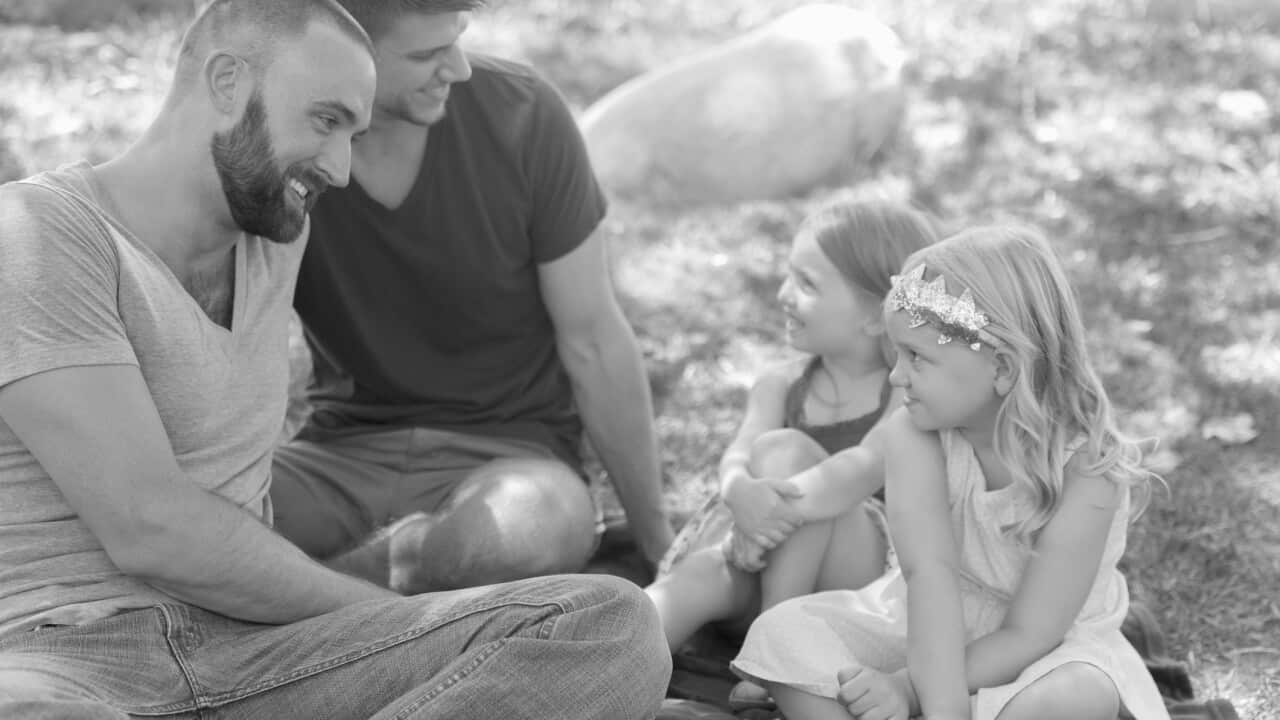When I joined a mothers’ group last year, I was impressed by how inclusive it was. In fact, it wasn’t even called mothers’ group, it was called parents’ group. The words “partners very welcome” was bolded in the invitation email from the local council.
In the first session, there were eight mums and four dads. When Sally, our maternal health nurse asked us to introduce ourselves and share something from our pregnancy, birth or early parenting journey, I was blown away by how honest everyone was.
Men and women discussed everything from infertility to pregnancy complications to traumatic births to postnatal depression.
At the next five facilitated sessions, there was representation of both genders.
It felt like progress.
As the formal sessions wrapped up, Sally encouraged us to stay connected. We arranged to meet at the same time, every week. A WhatsApp group was also set up: the group picture of our babies arranged in a circle, like slices of pizza.
Immediately he started to reap the benefits of first hand parenting advice.
Despite dads being in the room when phone numbers were exchanged, none joined the group chat. They also stopped coming to the catch-ups.
Parents’ group officially became mothers’ group.
At the time, I could see why. Most dads were returning to paid work while all the mums marched on as stay-at-home parents. The mums needed the friendship and support. The catch-ups gave us something to look forward to and the group chat became a safe place to vent, ask questions and share ideas at any time of the day.
The catch-ups and the group chat was a godsend during the long and lonely days of early parenting.
When I went back to full time work after ten months of parental leave, my husband took over as full time carer. I encouraged him to go to ‘mothers’ group’ with our daughter. By then, we had hired a community room and our active daughter was enjoying the space and company.
While I was happy for him to go to the face-to-face meetings, I felt differently about the group chat. I felt the group chat was a safe space and trusted community built by women when we were at our most vulnerable. He couldn’t just join like it was a Buy Swap Sell group.
What if we needed to talk about gyno issues or vent about our partners? Although neither topic have surfaced in the chat before, it might in the future and I didn’t want male presence to change the group dynamics.
I convinced myself and my partner that he didn’t need access. I was already handing over a baby who was eating well and sleeping through. His stint at home with a 10-month-old seemed like a walk in the park compared to my stint with a non-stop crying newborn (not to mention the childbirth recovery and crazy hormones); he didn’t need friendship or support from other first time parents in the local area.
I was wrong.
As a man, he was not immune to the exhaustion, anxiety and isolation that came with long and unstructured days with a baby. Added to that was the awkwardness of being the only man in most baby classes or activities as well as the lack of support from others going through the same thing.
As a man, he was not immune to the exhaustion, anxiety and isolation that came with long and unstructured days with a baby.
His exclusion from the group chat exemplified the problem.
The group met every Tuesday afternoon. He didn’t get the messages from the mums running late so he sat by himself in the community room with the baby, alone and wondering if he had the time and day wrong.
When the mums and bubs finally came, the mums continued conversations from the group chat that he had not been privy to. It was not at all deliberate on the mums’ part but like the new kid starting a new school half way through the term, he had a lot to catch up on.
I started to wonder if it would be so bad adding him to the chat. I was once proud of how inclusive the group was but now I was reinforcing traditional gender roles and perpetuating a myth that mothers’ group (and by extension, parenting) was secret women’s business.
It needn’t be this way.
Finally, I asked the mums if it was OK for him to join. The response was a resounding yes.
Immediately he started to reap the benefits of first hand parenting advice and invitations to impromptu coffee and play dates. He was contributing too with his musing on nap consolidation and baby weaning.
Recently, one mum needed someone to look after her baby, he volunteered. The mum dropped the baby over, no qualms at all that it was a father who offered.
I sincerely hope no mum has felt censored since my husband has joined because that would be a great loss. But the gain is a step closer to a future where mums and dads can fully and freely participate in all forms of parenting and that parents’ group really is an inclusive space both in name and in spirit.
This article was edited by Candice Chung, and is part of a series by SBS Life supporting the work of emerging young Asian-Australian writers. Want to be involved? Get in touch with Candice on Twitter



